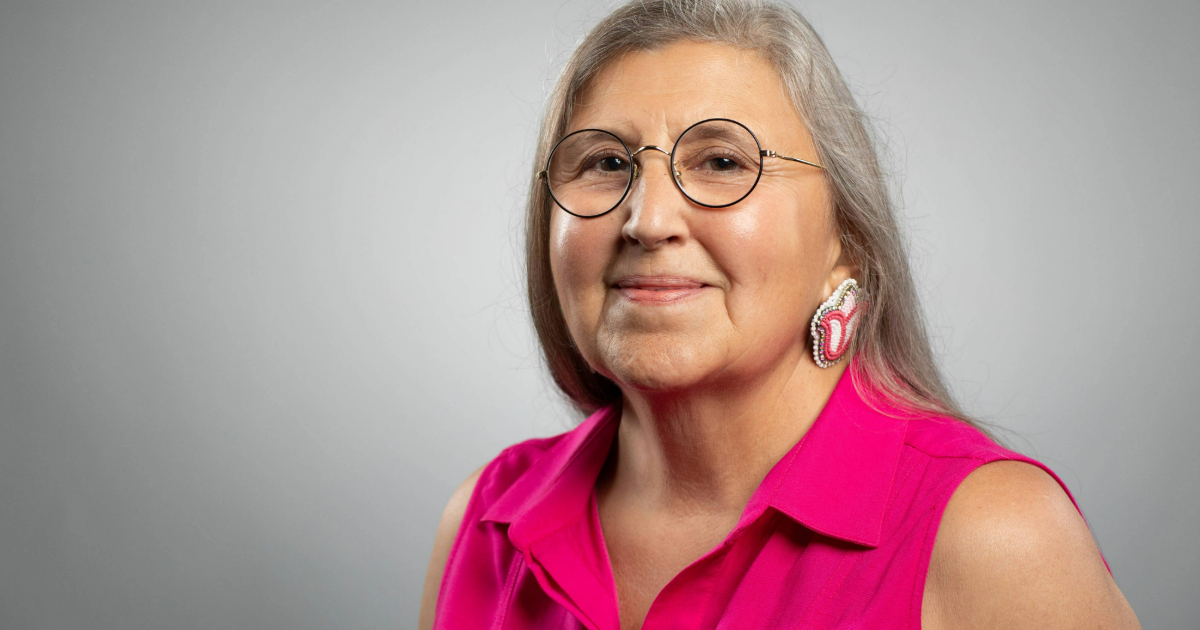
Change through rematriation
Pahan PteSanWin named as 2024 Vanier Scholar for her Indigenous rematriation and reparations research
“There are many things that need to change to address colonial violence, and that’s what I’m interested in. I’m interested in the change.”
Pahan PteSanWin is hopeful that her research on rematriation and reparations will be a step toward institutional and structural change so that the harms Indigenous people have faced, and continue to face on a daily basis, can stop.
Pahan [BSW/97, MSW-IK/23] is one of three UM PhD students selected as a 2024 Vanier Canada Graduate Scholarship recipient.
Vanier Scholars are Canada’s top graduate students, chosen for their academic excellence, research potential and leadership. Students are nominated by their university, evaluated by multi-disciplinary peer-review committees and selected by a board composed of world-renowned Canadian and international experts.
At the core of Pahan’s research topic, Beyond Repatriation of Indigenous Ancestral Remains and Cultural Heritage: Rematriation and Reparations in the Canadian Context, is the importance of envisioning what a future can look like past colonial violence.
Pahan says it is not enough for colonial institutions holding Indigenous ancestral remains and culture heritage just to repatriate them to descendant communities. Rematriation asks for more, to return, restore and repair within a woman-centered focus.
“Rematriation is a concept that academics are just starting to explore and what I want to do is elevate that understanding,” says Pahan. “I don’t think Reconciliation can happen when all you’ve done is the bare minimum. Through my research, I hope to make recommendations of realistic and fair actions/reparations that colonial institutions can take to create an environment where Reconciliation can occur.”
While she initially had a different research project in mind for her PhD, Pahan’s work as co-chair for the Respectful Rematriation and Repatriation Ceremony at UM led her down a different path.
“I realized I have to focus on this because it’s very important and has the most potential to make change for First Nations, Inuit and Métis people. Whatever time that I have to make a mark in this world, I want to devote it to that,” says Pahan.
Each Vanier Canada Graduate Scholarship recipient will receive $150,000 over three years toward their research. For Pahan, a Red River Métis citizen and first-generation university student, this opportunity is beyond what she ever imagined was possible.
“Every Indigenous person who makes it to the front step of a post-secondary institution has overcome so many barriers that it’s already a success to just put your foot on that front step,” says Pahan. “To be able to do a PhD with a Vanier Scholarship – it feels like a miracle. When I got the news, I cried for two days, I was just so happy.”
Pahan believes that being chosen as a Vanier Scholar is not just an opportunity for her, but a benefit for her community. She credits support from her ancestors, academic mentors at UM, her family and her community that recommended her for the award.






